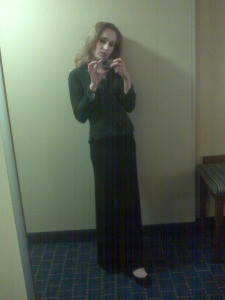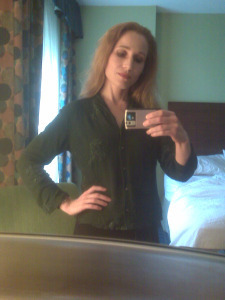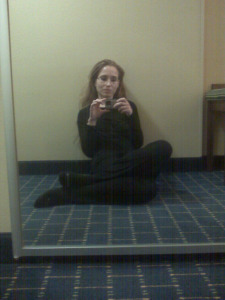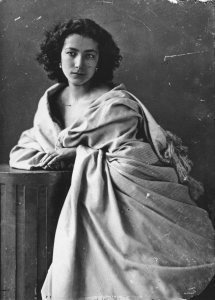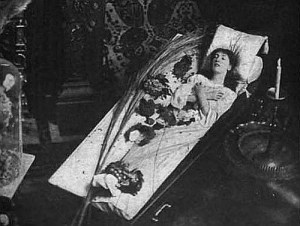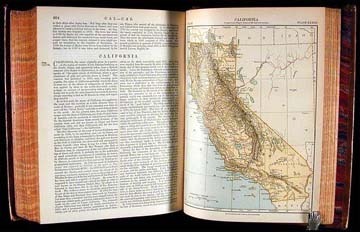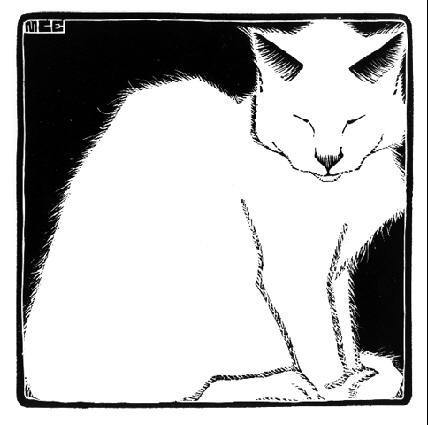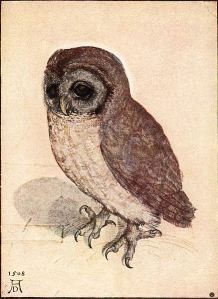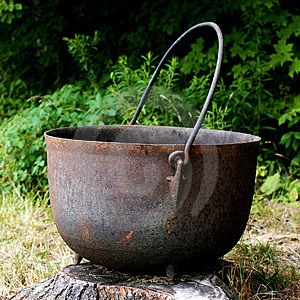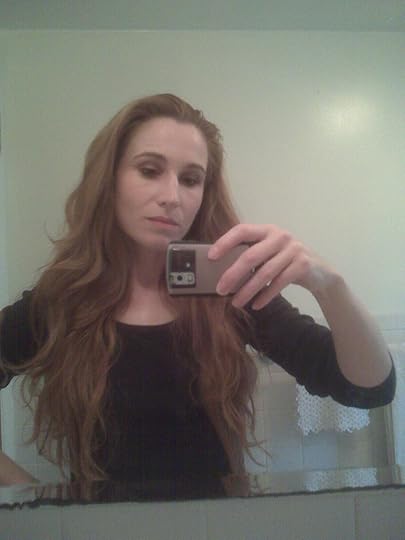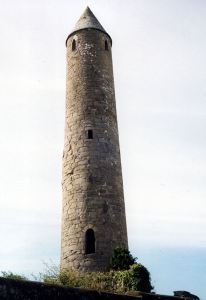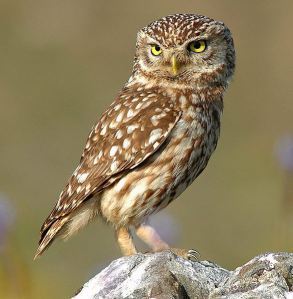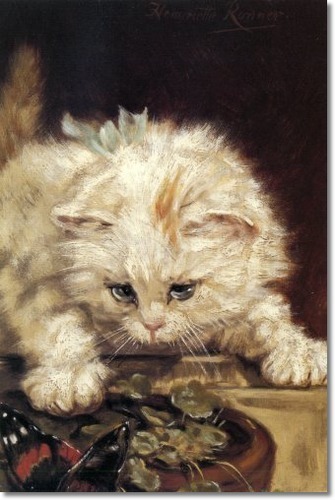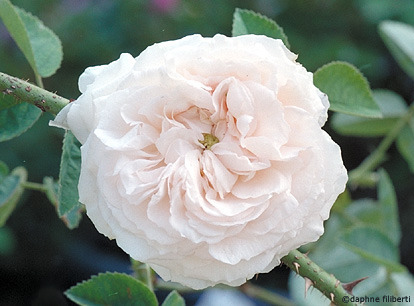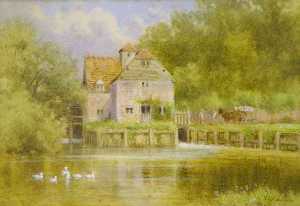Theodora Goss's Blog, page 37
April 19, 2012
My Crazy Schedule
The next two weeks are going to be crazy.
I’ve been terrible about updating this blog anyway. And I’m just not sure what the next two weeks are going to be like. They’re the last two weeks of the semester, and I have a feeling that there won’t be much time to update anything, or write, or even breathe much. There are things I’ve been meaning to post, such as about the Arkansas Literary Festival, which was lovely. I felt so well taken care of there! And I was on television for the first time! You can see the segment here: Reading Up a Storm at Arkansas Literary Festival. But the pictures I wanted to post are on my other computer, the broken one, and anyway I don’t have much focus left for writing about it all.
What to do today? I think the best thing for me to do would be to talk a bit about the various things I’ve been doing and what’s coming out. So here goes!
First, as you know, I spent last weekend at the Arkansas Literary Festival, which was absolutely lovely. I was invited by the wonderful Kevin Brockmeier, whom you should most certainly read. I would link to his website, but he doesn’t seem to have one. He has very kindly put “Professor Berkowitz Stands on the Threshold” on his list of fifty favorite short stories.
And then I learned that the panel I did at the International Conference on the Fantastic in the Arts, on monsters, has been turned into a podcast and can be heard on the Locus website. Here’s a description of the panel:
“Today we’re bringing you one of the evening panels held at ICFA this past March. The panel, held late on Thursday evening, featured (in the order you will hear them): Moderator F. Brett Cox, China Miéville, James Morrow, Suzy McKee Charnas, Peter Straub, Theodora Goss, and Kelly Link. They particularly discuss the question of the appropriateness of applying the label ‘monster’ to a real person, from both a cultural and historical perspective. “
Go listen to the podcast: ICFA Podcast: The Monstrous. I really do think it’s interesting, and the panel was a lot of fun.
And I have two reprints coming out, although I don’t know when yet. “Singing of Mount Abora” will be reprinted online in Lightspeed, and “Professor Berkowitz Stands on the Threshold” will be reprinted on the World SF Blog. I’ll let you know when those come out!
While I was doing all this, I forgot that I still had the Arkansas Literary Festival pictures I wanted to post on my camera. So I’ve emailed them to myself. They’re nothing really, just silly pictures I took with my cell phone, but I’ll post them anyway. Saturday, I had the television appearance early in the morning, and then I had a panel in the early afternoon. For the television appearance, I wore a long black skirt and a black jacket. (You can see it in the clip.) For the panel, I changed into a dark green blouse, which you can see below. This was how I looked at my panel, on the main day of the festival:
When I got back to my room that night, I was so tired! I had done a lot that day, gone to other writer’s events in addition to my own and wandered around Little Rock. I’m not sure if I should even post this, but this is the writer in a state of collapse:
So, the next two weeks are going to be crazy. And then, once my grades are in, I’m taking a week off and going on vacation. But I’ll tell you about that another time.

April 15, 2012
Learning to Travel
I’m traveling more and more. In February I was at Boskone, which was a very short trip, just to the other side of Boston. In April, I was in Orlando for the International Conference on the Fantastic in the Arts. And last weekend I was in Arkansas for the Arkansas Literary Festival, which by the way was wonderful. I was even on television! I appeared on Today’s THV, a morning show on Channel 11 in Little Rock, Arkansas. You can see the segment here: “Reading Up a Storm at Arkansas Literary Festival.”
The thing about traveling, for me, is that it’s exhausting. And sometimes I feel as though I don’t do it very well, particularly when I’m traveling a lot. I don’t eat well, or get enough exercise, or get anywhere near enough sleep. But this time, I decided that I was going to create some rules for myself that would make traveling easier and healthier. I’ve got a couple of rules already.
1. Sleep when you can. You really do need to sleep whenever you can, and that includes on airplanes. I slept most of the way home today. (I took four planes in three days: two there, two back. Boston, Chicago, Little Rock, Chicago, Boston.) You should never hesitate to take a nap in the middle of the day. It’s very difficult, when you’re doing these sorts of events, to get enough sleep. Sometimes you’re at a cocktail party at night, and then you’re on television early the next morning. And you want to do all that, it’s important to do, it’s why you’re there. But when you can sleep, do. And don’t be afraid to miss events. On the last night, I missed two events I had originally intended to make, but I knew that if I went, I would be out late socializing. And I had a plane to catch the next morning.
2. Eat small meals frequently. First of all, you’re going to get small meals. You’re going to get crackers and cheese at a cocktail party. Or a free continental breakfast at the hotel. Travel is expensive, and you want to take advantage of all the free meals you can. You also want to try all the foods you don’t usually get to. In Little Rock, for example, I had a chai frozen popsicle covered with chocolate. It was very good, and not something I’ve ever had before. The trick is never to eat too much at once, and to eat at frequent intervals so that you’re never either full or hungry. You’re going to be so busy that you need constant energy, and small meals are best for that.
3. Bring short-sleeved shirts and sweaters. I inevitably find that I’m hot outside and cold (often painfully cold) inside. Planes are cold, hotels are cold, anywhere conferences are held are usually air conditioned. So I find that I need to be ready for both the heat and the cold. The best way to do that, for me, is to bring short-sleeved shirts to wear underneath and sweaters to wear over them. I also find it very useful to bring scarves. They fit into small spaces, and yet they can add color to basic black clothes and warmth when you’re cold even in a sweater. Otherwise, I travel in jeans. Jeans and black skirts of various lengths will take you through most events you need to attend, as a writer.
So those are some of my travel basics. It’s very hard to stay healthy, physically and mentally, when you’re naturally an introvert and you have an intense travel schedule that involves meeting a lot of people. The more travel tricks you learn, the easier it is . . .
(Oh, one last trick. Never try to read anything serious on an airplane. You may have the best of intentions, but you will inevitably give up. Trust me. Magazines and murder mysteries are best.)








April 12, 2012
The Real Problem
Yesterday, I asked a question on my Facebook page:
"How do you all find time to write? Seriously, I'm starting to wonder how people do it. I know you're supposed to make time, but out of what, thin air? It's frustrating . . ."
I got some wonderful comments about how to find time, and some that recommended things I was already doing: for example, I don't watch much television anyway. But reading through them, I realized that the real problem wasn't time. It was energy.
The real question is, how do you find the energy to write? Because honestly, some days I can't even write a blog post. Part of it is my schedule: I teach four writing classes, and I have a two-hour commute to the university. Those two things by themselves take an enormous amount of time, but they take even more energy. At the end of a working day, I often just want to lie in bed, under a warm blanket, and do nothing. I've spent the entire day interacting with people, solving problems, dealing with whatever issues come up, and I'm exhausted. Perhaps I'm different from other writers in this way, but I need a clear head to write. I need energy.
You've seen "Blanchefleur," right? Well, that's my first draft. And while I don't want to praise my own writing, that's the way it comes out: what I type up, for a short story at least, is usually close to a final draft. But when I write, I'm never sitting there, idly scribbling. It always takes my complete focus. An hour or two of writing can be exhausting, although at the same time it can also be exhilarating enough that I continue on, sometimes beyond the point where I'm about ready to fall over.
So I think the real solution isn't to find more time, but to change my life so that I have more energy to write. That partly involves making sure I'm doing writing that pays, so I can justify not taking on other paying work and focusing on the writing. That means writing novels, and I'm certainly going to focus on novel writing next.
So here's the plan. (You knew there was going to be a plan, right? I am an inveterate maker of plans. And, often, those plans work.)
The plan is to get through the semester and then finish the novel over the summer. That will mean a lot of work, a lot of writing, all over the world since I'm going to be traveling. But I'm looking forward to it. I know my characters, I know quite a bit of the story I want to tell, and I'm looking forward to that sense of full immersion I get when I'm really going, when I'm living in the world I've created.
I want to spend time with my girl monsters.
The visual I'm going to give you tonight is Sarah Bernhardt:
Why am I giving you Sarah Berhardt? Because in a way, she identified herself as a girl monsters long before Lady Gaga came along. She slept in a coffin and she sculpted an inkwell with an image of herself as a gargoyle. That takes guts.
I have an enormous amount of respect for Sarah Bernhardt. Maybe I'll write her into my novel, somehow . . .








April 9, 2012
Blanchefleur: Part 6
This is the difficult part. Up until this part, I had something typed, or at least something handwritten. Now I'm working with only a general idea of where the story is going. And I realized, after I finished last night's section, that I wrote an Oswald into the story. I have no idea who Oswald is, but because of the way I write, in which ends are neatly tucked in, Oswald has to show up later. I think he may be one of the people trying to defeat the dragon. (Yes, there's a dragon. He'll show up eventually.)
Ivan was used to waking up at dawn, so wake up at dawn he did. He found a small bathroom under the stairs, splashed water on his face, got dressed, and went downstairs. Blanchefleur was sitting on the table, staring at the kettle still set on it, with a look of disdain on her face.
"What is that mess?" she asked.
"I think it's porridge," he said, after looking into the kettle. It smelled inviting, but then anything would have at that hour. Next to the kettle were a wooden bowl and spoon, as well as a napkin. "Did you put these here?" he asked Blanchefleur.
"Why would I do such a stupid thing?" she asked, and turned her back to him. She began licking her fur, as though washing herself were the most important thing in the world.
Ivan shrugged, spooned some of the porridge into the bowl, and had a plain but filling breakfast. Afterward, he washed the bowl and spoon. As soon as he had finished eating, the kettle had emptied again – evidently, it did not need washing. Then he sat down at the table and pulled the first of Professor Owl's notes toward him.
It was tedious work. First, he would read through Professor Owl's notes, which were written in a cramped, slanting hand. Then, he would try to add an entry to the file, as neatly and succinctly as he could. He had never paid attention in school, and writing did not come easily to him. After the first botched attempt, he learned to compose his additions on the backs of Professor Owl's notes, so when he went to write the entries, he was not fumbling for words. By noon, he had finished additions to the entries on Justice, Rose, Darwin, Theosophy, Venus, Armadillo, Badminton, and Indochina. His lunch was chicken soup with noodles. He thought about having nothing but soup, every noon and night for an entire year, and longed for a sandwich.
He sat down at the table and picked up the pen, but his back and hand hurt. He put the pen down. The sunlight out the window looked so inviting. Perhaps he should go out and wander around the tower, just for a little while? Where had Blanchefleur gone anyway? He had not seen her since breakfast. He got up, stretched, and walked out.
It had been his habit, as long as he remembered, to wander around as he wished. That was what he did now, walking around the tower, then heading toward the scrubby pines on the hillsides, looking idly for Blanchefleur and finding only lizards. He wandered without thinking about where he was going or how long he had been gone. The sun began to sink behind the mountains.
That was when he realized that he had been gone for hours. Well, it would not matter, would it? He could always catch up with any work he did not finish tomorrow. He walked back in the direction of the tower, only becoming lost once. It was dark when he reached it again. He opened the door and walked in.
There were Professor Owl and Blanchefleur. The Professor was sitting in the chair Ivan had occupied earlier that day, scribbling furiously. Blanchefleur was saying, "What did you expect of someone named Idiot? I told you he would be useless."
"Oh, hello, boy," said Professor Owl, looking up. "I noticed that you went out for a walk, so I finished all of the notes for today, except Orion. I'll have that done in just a moment, and then you can sit down for dinner. I don't think I told you that each day's entries need to be filed by the end of the day, or the Encyclopedia will be incomplete. And it has never been incomplete since I started working on it, five hundred years ago."
"I'll do it," said Ivan.
"Do what?" said Blanchefleur. "Go wandering around again?"
"I'll do the entry on Orion."
"That's very kind of you," said Professor Owl. "I'm sure you must be tired." But he handed Ivan the pen and hopped onto the table. It was a lopsided hop: Ivan could tell that the owl's right foot was hurting. He sat and finished the entry, conscious of Blanchefleur's eyes on him. When he was finished, Professor Owl read it over. "Yes, very nice," he said. "You have a clear and logical mind. Well done, boy."
Ivan looked up, startled. It was the first compliment he ever remembered receiving.
"Well, go on then, have some dinner," said Professor Owl. "And you'll be up at dawn tomorrow?"
"I'll be up at dawn," said Ivan. He knew that the next day, he would not go wandering around, at least until after the entries were finished. He did not want Blanchefleur calling him Idiot again in that tone of voice.








April 8, 2012
Blanchefleur: Part 5
This is going to be short, because I'm very, very tired.
"Human beings can't eat mice and birds," said Blanchefleur. "They have to cook their food."
"Yes, yes, of course," said Professor Owl. "An inefficient system, I must say. I believe I had – but where did I put it?" He turned around, looking perplexed, then opened the door of a closet under the stairs. He poked his head in, and then tossed several things out, so both Ivan and Blanchefleur had to dodge them. A pith helmet, a butterfly net, and a pair of red flannel underwear for what must have been a very tall man. "Yes, here is it. But you'll have to help me with it."
"It" was a large iron kettle. Ivan helped the owl pull it out of the closet and place it on the long wooden table. He looked into it, not knowing what to expect, but it was empty.
"It's a magic kettle, of course," said Professor Owl. "I seem to remember that it makes soup. You can sleep on the second floor. The third is my study, and I hope you will refrain from disturbing me during daylight hours, when I will be very busy indeed. Now, if you don't mind, I'm going out for a bit of a hunt. I do hope you will be useful to me. My last apprentice was a disappointment." He waddled comically across the floor and up the stairs.
"These scholarly types aren't much for small talk," said Blanchefleur.
"I thought he was going out?" said Ivan.
"He is," said Blanchefleur. "You don't think he's just going to walk out the door, do you? He's an owl. He's going to launch himself from one of the tower windows."
Ivan looked into the kettle again. Still empty. "Do you really think it's magic?" he asked. He had eaten the bread and cheese a long time ago, and his stomach was starting to growl.
"Try some magic words," said Blanchefleur.
"Abracadabra," he said. "Open Sesame." What other magic words had he learned in school? If he remembered correctly, magic had not exactly been a regular part of the curriculum.
"You really are an idiot," said Blanchefleur. She sprang onto the table, then sat next to the kettle. "Dear Kettle," she said. "We've been told of your magical powers in soup-making, and are eager to taste your culinary delights. Will you please make us some soup? Any flavor, your choice, but not onion because his breath is pungent enough already."
From the bottom, the kettle filled with something that bubbled and had a delicious aroma. "There you go," said Blanchefleur. "Magical items have feelings, you know. They need to be asked nicely. Abracadabra indeed!"
"I still need a spoon," said Ivan.
"With all you require for nourishment, I wonder that you're still alive!" said Blanchefleur. "Look in the closet."
In the closet, Ivan did indeed find several carved wooden soup spoons, as well as a croquet set, several pairs of boots, and a stuffed alligator.
"Beef stew," he said, tasting what was in the kettle. "Would you like some?"
"I'm quite capable of hunting for myself, thank you," said Blanchefleur. "Don't wait up. I have a feeling that when the Professor said you should be up by dawn, he meant it."
That night, Ivan slept on the second floor of the tower, where he found a comfortable bed, a desk, and a large traveling trunk with Oswald carved on it. He wondered if Oswald had been the professor's last apprentice, the one who had been such a disappointment. Because there were no pajamas in the satchel he had been given at the Castle in the Forest, he slept in the red flannel underwear. In the middle of the night, he thought he felt Blanchefleur jump on the bed and curl up next to his back. But when he woke up in the morning, she was gone.








April 7, 2012
Exhaustion
The problem, of course, is that I'm exhausted.
It's been building up for weeks and weeks. Well, at least the last two weeks. And when I'm exhausted, I don't have the energy to write. I just do what I have to, which at this point is work. I'm struggling even to keep up with the writing work: I have stories and interviews I owe people.
I keep trying to answer emails, but I get almost a hundred a day.
And of course, since I'm so tired, I'm not exercising or eating as well as I should be.
I think I'm just really struggling right now. Once the semester is over, I should be able to get my life cleaned up, get back on a better track. Because I simply can't keep doing this.
The PhD is over, right? Things were supposed to get better. But I think that once the PhD ended, all the things I'd been putting off suddenly started to happen – especially all the writing things. I literally can't even keep up with the requests for reprints and translation rights. And there's a special project I'm supposed to be working on that is going so much more slowly than I would like. And sometimes daily life is just a mess. (I totally forgot about Easter, and had to run around tonight buying Easter things for Ophelia, and spent way too much money – as one does, trying to do anything at the last minute.)
I'm afraid this blog post is all complaints. Well, so be it.
Today, I actually slept most of the day, because I was so exhausted from the week. Here I am, at around two in the afternoon, in the bathroom mirror. I have not yet brushed my hair. Sad, isn't it?








April 2, 2012
Blanchefleur: Part 4
About half of what follows was written before, about half I've had to write this evening. I think the story will come more slowly now, since I'm making it up as I go along. Here goes!
The Lady's castle was located in a forest called the Wolfwald. To the north, it stretched for miles, and parts of it were so thick that almost no sunlight reached the forest floor. At the foot of the northern mountains, wolves still roamed. But around the castle it was less dense. Ivan and Blanchefleur walked along a path strewn with oak leaves, through filtered sunlight. Ivan was silent, in part because he had always been accustomed to silence, in part because he did not know what to say to the white cat. Blanchefleur seemed much more interested in chasing insects, and even dead leaves, than in talking to him.
They stopped to rest when the sun was directly overhead. The forest had changed: the trees were shorter and spaced more widely apart, mostly pines rather than the oaks and beeches around the Lady's castle. Ahead of him, Ivan could see a different sort of landscape: bare, except for the occasional twisted trees and clumps of grass. It was dry, rocky, strewn with boulders.
"That's the Eastern Waste," said Blanchefleur.
"The ground will be too hard for your paws," said Ivan. "I can carry you."
"I'll do just fine, thank you," she said with a sniff. But after an hour of walking over the rocky ground, Ivan saw that she was limping. "Come on," he said. "If you hate the thought of me carrying you so much, pretend I'm a horse."
"A jackass is more like it," she said. But she let him pick her up and carry her, with her paws on his shoulder so she could look around. Occasionally, her whiskers tickled his ear.
The sun traveled across the sky, and hours passed, and still he walked though that rocky landscape, until his feet hurt. But he would not admit that he was in pain, not with Blanchefleur perched on his shoulder. At last, after a region of low cliffs and defiles, they came to a broad plain that was nothing but stones. In the middle of the plain rose a stone tower.
"That's it," said Blanchefleur. "That's Professor Owl's home."
"Finally," said Ivan under his breath. He had been feeling as though he would fall over from sheer tiredness. He took a deep breath and started for the tower. But before he reached it, he asked the question he had been wanting to ask all day, but had not dared to. "Blanchefleur, who is your father?"
"The man who lives in the moon," she said. "Can you hurry up? I haven't had a meal since that lizard at lunch, and I'm getting hungry."
"He's an owl," said Ivan.
"Of course he's an owl," said Blanchefleur. "What did you think he would be?"
Professor Owl was in fact an owl, the largest Ivan has ever seen, with brown and white feathers. When they entered the tower, which was round and had one room on each level, with stone stairs curling around the outer wall, he said, "Welcome, welcome. Blanchefleur, I haven't seen you since you were a kitten. And this must be the assistant the Lady has so graciously sent me. Welcome, boy. I hope you know how to write a good, clear hand."
"His name is Idiot," said Blanchefleur.
"My name is Ivan," said Ivan.
"Yes, yes," said Professor Owl, paying no attention to them whatsoever. "Here, then, is my life's work. The Encyclopedia."
It was an enormous book, taller than Ivan himself, resting on a wooden stand at the far end of the room. In the middle of the room was a long wooden table, and around the circular walls were file cabinets, more than Ivan had ever seen, all the way up to the ceiling.
"It's much too heavy to open by hand – or foot," said Professor Owl. "But if you tell the Encyclopedia what you're looking for, it will open to that entry."
"Mouse," said Blanchefleur. And sure enough, as she spoke, the pages of the Encyclopedia turned as though by magic (although it probably really is magic, thought Ivan) to a page with an entry titled Mouse.
"Let's see, let's see," said Professor Owl, peering at the page. "The bright and active, though mischievous, little animal known to us by the name of Mouse and its close relative the Rat are the most familiar and also the most typical members of the Murinae, a sub-family containing about two hundred and fifty species assignable to no less than eighteen distinct genera, all of which, however, are so superficially alike that one or other of the English names rat or mouse would be fairly appropriate to any of them. Well, that seems accurate, doesn't it?"
"Does it say how they taste?" asked Blanchefleur.
"The Encyclopedia is connected to five others," said Professor Owl, turning to Ivan. "One is in Library of Alexandria, one in the Hagia Sophia in Constantinople, one in the Sorbonne, one in the British Museum, and one in the New York Public Library. It is the only Encyclopedia of All Knowledge, and as you can imagine, it takes all my time to keep it up to date. I've devoted my life to it. But since I've developed arthritis in my legs (and Ivan could see that indeed, the owl's legs looked more knobby then they ought to), it's been difficult for me to write my updates. So I'm grateful to the Lady for sending you. Here is the table where you will work." He pointed to the long wooden table with his clawed foot. On the table was a large pile of paper, each page filled with scribbled notes.
"These are the notes I've made indicating what should be updated and how. If you'll look at the page on top of the pile, for instance, you'll see that the entry on Justice needs to be updated. There have been, in the last month alone, five important examples of injustice, from the imprisonment of a priest who criticized the Generalissimo to a boy who was deprived of his supper when his mother wrongly accused him of stealing an mince pie. You must add each example to the entry under Justice – Injustice – Examples. The entry itself can be found in one of the cabinets along the wall – I believe it's the twenty-sixth row from the door, eight cabinets up. Of course I can't possibly include every example of injustice – there are hundreds every hour. I only include the ones that most clearly illustrated the concept. And here are my notes on a species of wild rose newly discovered in the mountains of Cathay. That will go under Rose – Wild – Species. Do you understand, boy? You are to look at my notes and add whatever information is necessary to update the entry, writing directly on the file. The Encyclopedia itself will incorporate your update, turning it into typescript, but you must make your letters clearly. And no spelling errors! Now, it's almost nightfall, and I understand that humans have defective vision, so I suggest you sleep until dawn, when you can get up and start working on these notes as well as the ones I'll be writing overnight."
"Professor," said Blanchefleur, "we haven't had any supper."
"Supper?" said Professor Owl. "Of course, of course. I wouldn't want you to go hungry. There are some mice and birds in the cupboard. I caught them just last night. You're certainly welcome to them."








April 1, 2012
Blanchefleur: Part 3
Here you go, the third part of "Blanchefleur." I don't have much typed beyond when Ivan gets to Professor Owl's house, so next week I'm going to have to start drafting. I already know this whole story. It's just a matter of getting the details right.
"Then you shall set out tomorrow morning," said the Lady. "Tonight you shall join us in our feast. Are the preparations ready, Marmalade?"
"Almost, my Lady," said the orange cat.
"How will I find this Professor Own?" asked Ivan.
"Blanchefleur will take you," said the Lady.
"You can't be serious!" said Blanchefleur. "He's an idiot, and he stinks like a pigsty."
"Then show him the bathroom, where he can draw himself a bath," said the Lady. "And give him a suit of clothes to wear. Those are too ragged even for Professor Owl, I think."
"Come on, you," said Blanchefleur, clearly disgusted. He followed her out of the room and up a flight of stairs, to a bathroom with a large tub on four clawed legs. He had never seen anything quite like it before. At the mill, he had often washed under the kitchen spigot. After she had left, he filled it with hot water that came out of a tap and slipped into it until the water was up to his chin.
What a strange day it had been. Three days ago he had left his father's house and the life he had always lived, a life that required almost nothing of him: no thought, no effort. And now here he was, in a castle filled with talking cats. And tomorrow he would start for another place, one that might be even stranger. When Blanchefleur had taunted him by telling the Lady that he had nothing to say for himself, he had wanted to say – what? Something that would have made her less disdainful. But what could he say for himself, after all?
With the piece of soap that he found in a porcelain dish, he washed himself more carefully than he had ever before in his life. She has said that he smelled like a pigsty, and he had spent the night before last sleeping on a haystack that was, indeed, near a pen where several pigs had grunted in their dreams. Last night, he had slept in the forest, but he supposed that the smell still lingered – particularly to a cat's nose. For the first time in years, he felt a sense of shame.
He dried himself and put on the suit of clothes she had told him to wear: gray trousers and a linen tunic embroidered in red at the collar and cuffs, with a black leather belt and a pair of tall black boots. He went back down the stairs, toward the sound of music and laughter, and found his way to the great hall. It was lit with torches, and sitting at the two long tables were cats of all shapes and colors: black and brindled and tortoiseshell and piebald, with short hair and long, and even one with no hair at all. Sitting on the dais were the Lady, with Blanchefleur beside her, and a large yellow and brown cat who was striped like a tiger. He stood in the doorway, feeling self-conscious and a bit shy.
The Lady saw him across the room and motioned for him to come over. He walked to the dais and bowed before it, because that seemed the appropriate thing to do. She said, "That was courteous, nephew. Now come sit with us. Tailchaser, you will not mind giving your seat to Ivan, will you?"
"Of course not, my Lady," said the yellow and brown cat in a tone that indicated he did indeed mind, very much.
Ivan took his place, and Marmalade brought him a bowl filled with a stew of various meats – a bird of some sort, and what he very much hoped was a hare rather than a mouse. It was good, although relatively flavorless. The cats, evidently, did not use salt in their cooking. Beside it was a dish of fresh grass, which Ivan decided not to eat, although he noticed that Blanchefleur was chewing on hers. He hoped that leaving it would not offend anyone. Halfway through the feast, he was startled to realize that the cats were eating with silver spoons, just as he was. They were conversing with one another and nodding politely, as though they were a roomful of ordinary people. He was probably the only silent one in the entire room. Several times he noticed Blanchefleur giving him exasperated looks.
When he had finished eating, the Lady said, "I think it's time to dance." She clapped her hands, and suddenly Ivan heard music. He wondered where it was coming from, then noticed that, at the far end of the room, a group of cats were playing, more skillfully than he had supposed possible, a fife, a viol, a tabor, and other instruments he could not identify, one of which curved like a long snake. The cats that had been sitting at the long tables moved them to the sides of the room, then formed two lines in the center. He had seen a line dance before, at one of the village fairs, but he had never seen one danced as gracefully as it was by the cats. They wove in and out, each line breaking and then reforming in intricate patterns.
"Aren't you going to ask your cousin to dance?" said the Lady, leaning over to him.
"What? Oh," he said, feeling foolish. How could he dance with a cat? But the Lady was looking at him, waiting. "Would you like to dance?" he asked Blanchefleur.
"Not particularly," she said, looking at him with disdain. "Oh, all right, Mother! You don't have to pull my tail."
He wiped his mouth and hands on a linen napkin, then followed Blanchefleur to the dance floor and joined at the end of the line, feeling large and clumsy, trying to follow the steps and not tread on any paws. It did not help that, just when he was beginning to feel as though he was learning the steps, he saw Tailchaser glaring at him from across the room. Although he danced several times, once with Blanchefleur, once with Mrs Pebbles, who must have taken pity on him, and once with Fluff, who told him that it was a pleasure to dance with such a handsome young man and seemed to mean it, he only stepped on one set of paws, belonging to a tabby tomcat who said, "Do that again, Sir, and I'll send you my second in the morning," but was mollified when Ivan apologized sincerely and at length. After that, he insisted on sitting down until the feast was over and he could go to bed.
The next morning, he woke and wondered if it was all a dream, but no – there he was, lying in the most comfortable bed he had ever slept in, on a feather pillow and under a comforter stuffed with feathers, in the Lady's castle. And there was Blanchefleur, sitting in a nearby chair, saying, "About time you woke up. We need to get started if we're going to make the Eastern Waste by nightfall."
Ivan got out of bed, vaguely embarrassed to be seen in his drawers, then reminded himself that she was just a cat. He put on the trousers and tunic from last night, then found his satchel on a dresser. All of his old clothes were gone, replaced by new ones. In the satchel he also found a loaf of bread, a hunk of cheese, a flask of wine, and a shiny new knife with a horn handle.
"I should thank the Lady for all these things," he said.
"That's the first sensible thing you've said since you got here," said Blanchefleur. "But she's gone to see my father, and won't be back for three days. And we have to get going. So hurry up already!"








March 31, 2012
Blanchefleur: Part 2
I ended the first installment a little too soon, I realized yesterday. There's a little more of that scene I should have included. Here is it.
She was tall and pale, with long gray hair that hung to the back of her knees, although she did not look older than when he had last seen her, at his wedding. She wore a gray linen dress that, although it was midsummer, reminded him of winter.
"How is my nephew? This is his name's day, is it not?"
"It is, Lady. As to how he is –" The miller told her. He might not have, if the beer had not loosened his tongue, for he was a proud man and he did not want his sister-in-law to think that his son was doing badly. But with the beer and his worries, it all came out – the days Ivan spent staring out of windows or walking through the countryside, how the local farmers thought of him, even that name – Idiot.
"I warned you that no good comes of a mortal marrying a fairy woman," said the Lady. "But those in love never listen. Send my nephew to me. I will make him my apprentice for three years, and at the end of that time we shall see. For his wages, you may take these."
She handed him a purse. He bowed in acknowledgment, saying, "I thank you for your generosity –" but when he straightened again, she was already walking away from him. Just before leaving the innyard, she turned back for a moment and said, "The Castle in the Forest, remember. I will expect him in three day's time."
The miller nodded, although she had already turned away from him. As he rode home, he looked into the purse she had given him – in it was a handful of leaves. He wondered how he was going to tell his son about the bargain he had made. But when he reached home, the boy was sitting at the kitchen table whittling something out of wood, and he simply said, "I have apprenticed you for three years to your aunt, the Lady of the Forest. She expects you in three day's time."
The boy did not say a word. But the next morning, he put all of his possessions – they were few enough – into a bag, which he slung over his shoulder. And he set out.
In three day's time, Ivan walked through the forest, blowing on the whistle he had carved. He could hear birds calling to each other in the forest. He whistled to them, and they whistled back. He did not know how long his journey would take – if you set out for the Castle in the Forest, it can take you a day, or a week, or the rest of your life. But the Lady had said she expected him in three days, so he thought he would reach the Castle by the end of the day at the latest.
Before he left, his father had looked again in the purse that the Lady had given him. In it was a pile of gold coins – as the miller had expected, for that is the way fairy money works. "I will keep this for you," his father has said. "When you come back, you will be old enough to marry, and with such a fortune, any of the local girls will take you. I do not know what you will do as the Lady's apprentice, but I hope you will come back fit to run a mill."
Ivan had simply nodded, slung his bag over his shoulder, and gone.
Just as he was wondering if he would indeed find the castle that day, for the sun was beginning to set, he saw it: through the trees, its turrets rising above a high stone wall.
He went up to the wall and knocked at the wooden door that was the only way in. It opened, seemingly by itself. In the doorway stood a white cat.
"Are you the Idiot?" she asked.
"I suppose so," he said, speaking for the first time in three days.
"That's what I thought," she said. "You certainly look the part. Well, come in then, and follow me."
He followed her through the doorway and along a stone path that led through the castle gardens. He had never seen such gardens, although in school his teacher had once described the gardens that surrounded the King's castle, which she had visited on holiday. There were fountains set in green lawns, with stone statues spouting water. There were box hedges, and topiaries carved into various shapes. There were pools filled with waterlilies, in which black and orange carp were swimming. There were arched trellises from which roses hung down in profusion, and an orchard with fruit tress. He could even see a kitchen garden, with vegetables in neat rows. And all through the garden, he could see cats, pruning the hedges, tying back the roses, raking the earth in the flower beds.
It was the strangest sight he had ever seen, and for the first time it occurred to him that being the Lady's apprentice would be an adventure – the first of his life.
The path took them to the door of the castle, which swung open as they approached. An orange tabby walked out and stood waiting at the top of the steps.
"Hello, Marmalade," said the white cat.
"Good evening, Miss Blanchefleur," he replied. "Is this the young man her Ladyship is expecting?"
"As far as I can tell," she said. "Although what my mother would want with such an unprepossessing specimen, I don't know."
The orange cat bowed to Ivan and said, "Welcome, Ivan Miller. Her Ladyship is waiting in the solar."
Ivan expected the white cat, whose name seemed to be Blanchefleur, to leave him with Marmalade, but instead she followed them through the doorway, then through a great hall whose stone walls were hung with tapestries showing cats sitting in gardens, playing instruments, even hunting for rabbits and catching fish. Here too there were cats, setting out bowls on two long wooden tables, and on a shorter table set on a dais at the end of the room, for what would evidently be an evening feast. As Marmalade passed, they nodded, and a gray cat who seemed to be directing their activities said, "We're almost ready, Mr. Marmalade. The birds are nicely roasted, and the mint sauce is really a treat if I say so myself."
"Excellent, Mrs. Pebbles. I can't tell you how much I'm looking forward to those birds. Tailchaser said that he caught them himself."
"Well, with a little help!" said Mrs. Pebbles, acerbically. "He doesn't go on the hunt alone, does he now, Mr. Marmalade? Them as boasts most does least, that's what I've always found. Oh, begging your pardon, Miss," she said when she saw Blanchefleur. "I didn't know you were there."
"I couldn't care less what you say about him," said Blanchefleur, which a sniff and a twitch of her tail. "He's nothing to me."
"As you say, Miss," said Mrs. Pebbles, not sounding particularly convinced.
At the back of the great hall was another, smaller door that led to a long stone hallway. Ivan was startled when, at the end of the hallway, which had been rather dark, they emerged into a room filled with sunlight. It had several windows looking out onto a green lawn, and scattered around the room were low cushions, on which cats sat engaged in various tasks. Some were carding wool, some were spinning it on drop spindles, some were plying the yarn or winding it into skeins. In a chair by one of the windows sat the Lady, with a piece of embroidery in her lap. One of the cats was reading a book aloud, but stopped when they entered.
"My Lady, this is Ivan Miller, your new apprentice," said Marmalade.
"Otherwise known as the Idiot," said Blanchefleur. "And he seems to deserve the name. He's said nothing for himself all this time."
"My dear, you should be polite to your cousin," said the Lady. "Ivan, you've already met my daughter, Blanchefleur, and Marmalade, who takes such marvelous care of us all. These are my ladies in waiting: Elderberry, Twilight, Snowy, Whiskers, and Fluff. My daughter tells me you have nothing to say for yourself. Is that true?"
Ivan stared at her, sitting in her chair, surrounded by cats. She had green eyes, and although her gray hair hung down to the floor, she reminded him of his mother. "Yes, Ma'am," he said.
She looked at him for a moment, appraisingly. Then, she said, "Very well. I will send you where you need not say anything. Just this morning I received a letter from an old friend of mine, Professor Owl. He is compiling an Encyclopedia of All Knowledge, but he is old and feels arthritis terribly his legs. He can no longer write the entries himself. For the first year of your apprenticeship, you will go to Professor Owl in the Eastern Waste and help him with his Encyclopedia. Do you think you can do that, nephew?"
"It's all the same to me," said Ivan. It was obvious that no one wanted him here, just as no one had wanted him at the mill. What did it matter where he went?








March 30, 2012
Blanchefleur: Part 1
This is an experiment. I don't know if it's going to work. But I have a problem, which is that I'm not writing. So I thought I would try to write a story here, in installments. The story is called "Blanchefleur," and I've written about 4000 words of it. I'm going to post those over the next few days. And then I'll try to write the rest of it. By the end, I should at least have a first draft for my writing group to critique.
So here goes. Here's the story. This is how it starts.
They called him Idiot.
He was the miller's son, and he had never been good for much. At least not since his mother's death, when he was twelve years old. He had found her floating, face-down, in the millpond, and his cries had brought his father's men. When they had turned her over, he had seen her face, pale and bloated, before someone had said, "Not in front of the child!" and they had hurried him away. He had never seen her again, just the wooden coffin going into the ground, and after that, the gray stone in the churchyard where, every Sunday, he and his father left whatever was in season – a bunch of violets, sprays of the wild roses that grew by the forest edge, tall lilies from beside the mill stream. In winter, they left holly branches red with berries.
Before her death, he had been a laughing, affectionate child, playing all day long. After her death, he became solitary. He would no longer play with his friends from school, and eventually they began to ignore him. He would no longer speak even to his father, and anyway the miller was a quiet man who, after his wife's death, grew even more silent. He was so broken, so bereft, by the loss of his wife that he could barely look at the son who had her golden hair, her eyes the color of spring leaves. Often they would go a whole day, saying no more than a few sentences to each other.
He went to school, but he never seemed to learn – he would stare out the window or, if called upon, shake his head and refuse to answer. Once, the teacher rapped his knuckles for it, but he simply looked at her with those eyes, which were so much like his mother's. The teacher turned away, ashamed of herself, and after that she left him alone, telling herself that at least he was sitting in the schoolroom rather than loafing about the fields.
He learned nothing, he did nothing. When his father told him to do the work of the mill, he did it so badly that the water flowing through the sluice gates was either too fast or too slow, or the large millstones that grind the grain were too close together or far apart, or he took the wrong amount of grain in payment from the farmers who came to grind their wheat. Finally, the miller hired another man, and his son wandered about the countryside, sometimes sleeping under the stars, eating berries from the hedges when he could find them. He would come home dirty, with scratches on his arms and brambles in his hair. And his father, rather than scolding him, would look away.
If anyone had looked closely, they would have seen that he was clever at carving pieces of wood into whistles, and that he seemed to know how to call all the birds. Also, that he knew all the paths through the countryside and could tell the time by the position of the sun and moon on each day of the year, his direction by the stars. He knew the track and spoor of every animal, what tree each leaf came from by its shape. He knew which mushrooms were poisonous and how to find water under the ground. But no one did look closely.
It was the other schoolboys, most of whom had once been his friends, who started calling him Idiot. At first it was Idiot Ivan, but soon it was simply Idiot, and it spread through the village until people forgot that he had ever been called Ivan. Farmers would call to him, cheerfully enough, "Good morning, Idiot!" They meant no insult by it. In villages, people like knowing who you are. The boy was clearly an idiot, so let him be called that. And so he was.
No one noticed that under the dirt, and despite the rags he wore, he had grown into a large, handsome boy. He should have had sweethearts, but the village girls assumed he was slow and had no prospects, even though he was the miller's son. So he was always alone, and the truth was, he seemed to prefer it.
The miller was the only one who still called him Ivan, although he had given his son up as hopeless, and even he secretly believed that the boy was slow and stupid.
This was how things stood on the day that the miller rode to market to buy a new horse. The market was held in the nearest town, on a fine summer day that was also the feast-day of Saint Ivan, so the town was filled with stalls selling livestock, vegetables from the local farms, leather and rope harnesses, embroidered linen, woven baskets. Men and women in smocks lined up to hire themselves for the coming harvest. There were strolling players with fiddles or pipes, dancers on a wooden platform, and a great deal of beer – which the miller drank from a tankard.
The market went well for him. He found a horse for less money than he thought he would have to spend, and while he was paying for his beer, one of the maids from the tavern winked at him. She was plump, with sunburnt cheeks, and she poured his beer neatly, leaving a head of foam that just reached the top of the tankard. He had not thought of women, not in that way, since his wife had drowned. She had been one of those magical women, beautiful as the dawn, as slight as a willow-bough and with a voice like birds singing, that are perhaps too delicate for this world. That kind of woman gets into a man's blood. But lately he had started to notice once again that other women existed, and that there were other things in the world than running a mill. Like his son, who was a great worry to him. What would the idiot – Ivan, he reminded himself – what would he do when the his father was gone, as we must all go someday? Would he be able to take care of himself?
He had saddled his horse and was fastening a rope to his saddle so the new horse could be led, when he heard a voice he recognized from many years ago. "Hello, Stephen Miller," it said.
He turned around and bowed. "Hello, Lady."









